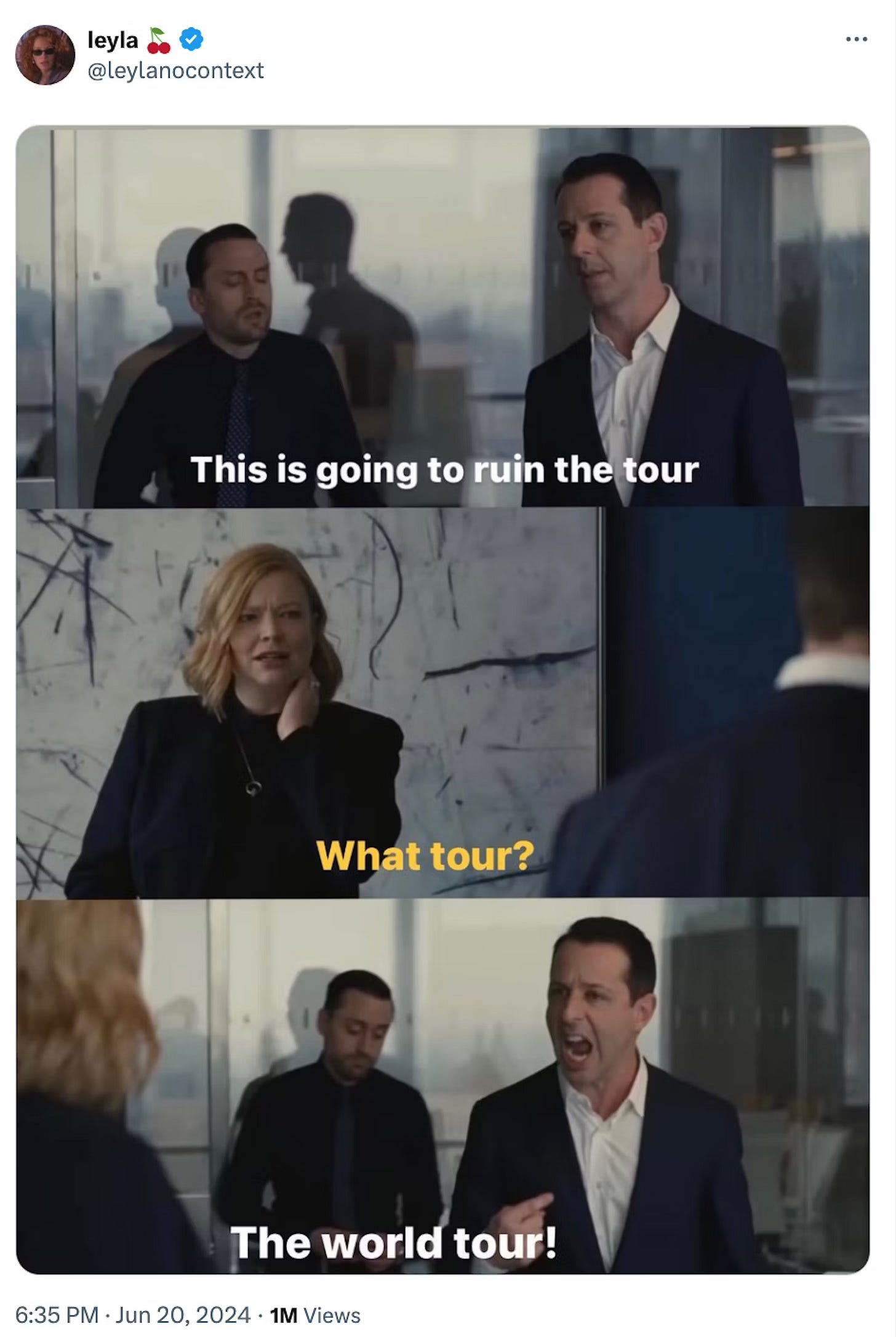New York joined a growing list of states regulating children’s access to social media this week, arguing that algorithmic feeds are irredeemably, dangerously damaging. Not just damaging, mind you, but addictive — the word’s right there in the name of the bill. And lest you think that just a gambit for a catchy acronym, the text uses “addictive” five times, as well.
Do words … have meaning anymore? Is this meant to be metaphorical? A friend who works in public health put the issue succinctly: “Heroine is an addiction, not social media.” And yet, lawyers, journalists and policymakers are increasingly deploying the language of addiction to talk about things that arguably are not, from smartphones and online pornography to video games and TikTok.1
Maybe this distinction is academic — the medical and popular definitions of “addiction” diverged years ago, after all — but it strikes me as both ironic and a little galling that the policymakers decrying “addictive feeds” have also gleefully rubber-stamped the rapid expansion of online gambling, with its myriad, well-documented, DSM-recognized harms. Just last month, the American Association for the Treatment of Opioid Dependence — an advocacy group that presumably knows a lot about addiction — warned about the sudden uptick in “dangerous” gambling behavior. And yet, Surgeon General Vivek Murthy is out here calling for social media warning labels.
I’m not saying teen social media use isn’t problematic, to be clear, and I’m not saying legislators shouldn’t take it on. But I *am* suggesting that you can tell a lot about a culture by what it deems “addictive” at any given moment.
For more on this: The Links x Techno Sapiens Guide to Teens & Screens curated 10 articles every parent (slash person) should read to wrap their heads around this debate.
💌 Reminder!!: I’m collecting long-forgotten personal emails for a project to run later this summer. I’ve gotten lots of wonderful messages so far but am still taking submissions. Learn more about that project here and forward your emails to linksiwouldgchatyou@gmail.com OR submit them via Google Form by June 30.
If you read anything this weekend
“Inside Snapchat’s Teenage Opioid Crisis,” by Paul Solotaroff for Rolling Stone. Snapchat absolutely hopes to position itself as the last remaining “feel-good” social media app, as evidenced by its irritating and increasingly unavoidable ads. So you have to imagine they were not at all happy with this damning eight-month investigation, which found the app has become a favored venue for cartels and other dealers selling fake, fentanyl-laced pills to kids. Per Solotaroff, Snapchat is uniquely suited to this use case — real-time location sharing, disappearing messages — and uniquely bad at helping law enforcement. It’s contributed to dozens of overdose deaths. (Where’s THAT social media legislation?)
“I Am Laura Kipnis-Bot, and I Will Make Reading Sexy and Tragic Again,” by Laura Kipnis for Wired. I am squarely in the target audience for Rebind, an ambitious and much-publicized AI reading app that claims to make high literature accessible to those of us who haven’t cracked a Great Work since college. I can’t imagine that audience is particularly large … nor that very many people crave Lena Dunham’s take on A Room With a View … but I’m naturally intrigued by those rare AI projects that at least seem intended to extend human creativity or creative potential. (This, admittedly, stung a BIT: “You read all these wonderful books as an undergrad, and then you graduate and you read newsletters.”)
“My Encounter With the Fantasy-Industrial Complex,” by Renée DiResta for The Atlantic. Renée DiResta, formerly the long-time research director at the Stanford Internet Observatory, is not the first or only innocent civilian to get savaged by the right-wing conspirosphere. She is, however, uniquely sharp, wry and persistent in her observations of that process and the larger misinformation machine. (Incidentally, the Stanford Internet Observatory is now ramping down following a sustained and costly harassment campaign.)
“What’s Eating Jack Schlossberg?,” by William Cohan for Town and Country. My read on Jack Schlossberg — the Kennedy scion whose bizarre online antics have provoked much pearl-clutching of late — is that he’s essentially just doing weird Twitter on Instagram (… with vast amounts of generational wealth/power/fame). But no one who writes about him seems to get the schtick at all. It’s almost as if, just spit-balling here, there are significant generational differences in political comms.
“What Happened to People Magazine?” by for Culture Study. A fascinating, accessible case study of larger changes in online media, from the rise of platforms to the transformation of legacy brands into affiliate-marketing farms.
In case you missed it
The most-clicked link from last Saturday’s edition was this Guardian story on so-called sigma males.
On Wednesday, I wrote a light, fun, uplifting piece on grief tech and miscarriage. 🙃
Postscripts
A lovely little story about a GeoGuessr champ who finally logged off and traveled IRL. A fun appreciation of Ursula Le Guin’s blog and the “last good social media app.” The “declining legibility” of internet memes. The rise and fall of Project Veritas. The second most-popular streaming service is a free site that I’d never heard of.
How artists became “creatives.” Why online shopping has a fake-product problem. Google is fantastically (and irretrievably?) broken, but good luck searching Reddit instead. The evolving definition of the word “AESTHETIC.” A collection of sinister Kindle ads. Rodent boyfriends, ketchup ice cream and AI’s early forays into local politics. Is it cheaper to just live at an all-inclusive resort? (The answer, unfortunately, is no.) How did M.I.A. end up hawking 5G-blocking ponchos on Alex Jones’ show? I don’t want an “AIM status” for Instagram. I do recommend a Tech Guilt Absolution Day. Last but not least: “Hartzmark, the professor, says he doesn’t condone tarot as a day-trading strategy.
BELOW the paywall you’ll also find:
Unlocked links from the The New York Times, The Washington Post and The Atlantic
A heartwarming TikTok hashtag
Very good music to play while you work
Two summer cocktail recipes, one of them bad
An absolute GEM of modern graphic design, courtesy the Links Founding Subscriber Slack
Until next week! Warmest virtual regards,
Caitlin
Keep reading with a 7-day free trial
Subscribe to Links I Would Gchat You If We Were Friends to keep reading this post and get 7 days of free access to the full post archives.







